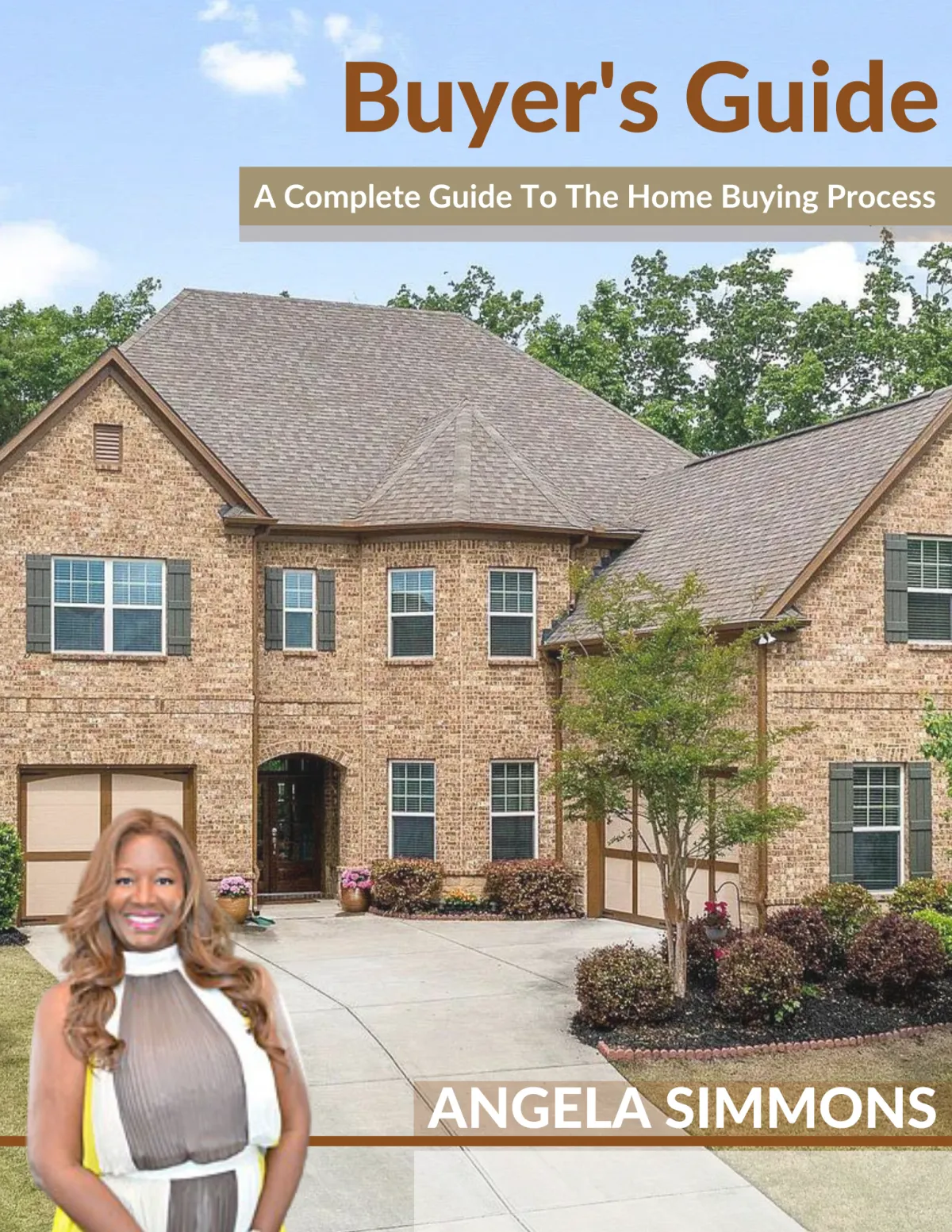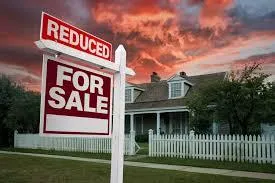Thinking About Buying A Home in
Gwinnett & Metro Atlanta?
Download the Buyers Guide

Things to Consider When Buying a Home Summer 2025
First-Time Homebuyer Guide
You Pick Local Gwinnett & Metro Atlanta Homes You Like, Premier Homes By Angela Will Do The Rest.
Ready to look at homes for sale in Gwinnett & Metro Atlanta? We have your back when it comes to negotiating a great deal, noticing those things most people don’t catch, handling all of the paperwork, & finding those properties you can’t easily find online.
You Pick Local Gwinnett & Metro Atlanta Homes You Like, Premier Homes By Angela Will Do The Rest.
Ready to look at homes for sale in Gwinnett & Metro Atlanta? We have your back when it comes to negotiating a great deal, noticing those things most people don’t catch, handling all of the paperwork, & finding those properties you can’t easily find online.
Finding the Right Seller
The best seller is one who is highly motivated. A highly motivated seller is more likely to sell at a price that is less than his or her house is actually worth. And it matters that you find out why. Learning the reason why can help you get the price you want and help the seller get what they want: a timely sale.
When given the opportunity to meet with sellers, ask them why they are selling. The reason could be anything, such as a job change to a new location or financial problems. If you can solve their problem, whether it is cash related or time-related, do so. For example, if the sellers are highly motivated because they need to move quickly, give them a fast sale – and a lower price. If you can make an offer, even a low one, that gives them cash in a short time, they are more likely to accept.
There are also some sellers that you should avoid. Not every seller is as genuinely motivated as they make themselves to be. Some possible hints:
they stall on having the home appraised or inspected
they are unable to clear up liens against their property
they do not own 100% of their property
they push back the move-out date
they do not have a replacement property or back up plan etc.
It is impossible to find the perfect seller. But it is possible to find out which sellers are legit and which ones aren’t.



Quick Property Search

Hot, Normal, and Cold Markets
Hot Markets

This is an extremely competitive market and is advantageous to the seller. Sometimes, homes will sell as soon as they are listed or even before homes are listed. Typically, during a hot market, multiple offers will be made on each home and more often than not, homes will sell for more than the asking price. It is even more crucial to be prepared and to be ready as a buyer when the market is hot. It can be easy to get caught up in the bid for a home, but if you are prepared (preapproved, solid in price range, realistic about your needs), it is easier to remain focused on your housing needs and price range.
Normal Markets

In a normal market, there is a fairly large number of homes available and an average number of buyers. This market does not necessarily favor the buyer or the seller. A seller may not have as many offers on their home, but he or she may not be desperate to sell either. Again, it is the buyer’s responsibility to be prepared. During a normal market, the chances to negotiate are higher than in a hot market. As a buyer, you can expect to make offers at lower than the asking price and negotiate a price at least somewhat less than what the sellers are asking.
Cold Market

In a cold market, houses may be listed for more than a year and the prices of houses listed may drop considerably. This market is advantageous to the buyer. As a buyer, you have the time to make an offer that works in your best interest. It is not uncommon to low-ball and to find that sellers are accommodating to meet your needs. Keep in mind that even though this market is a great time for buyers, you do not want to lose your dream home by being unrealistic. Your goal is to get your dream home at the best possible price.
Importance of Inspection
As a buyer, you are entitled to know exactly what you are getting. Don’t take anything for granted, not even what you see or what the seller or listing agent tells you. A professional home inspection is something you MUST do, whether you are buying an existing home or a new one.
An inspection is an opportunity to have an expert look closely at the property you are considering purchasing and getting both an oral and written opinion as to its condition.
Beforehand, make sure the report will be done by a professional organization, such as a local trade organization or a national trade organization such as ASHI (American Society of Home Inspection). Not only should you never skip an inspection, but also you should be present with the inspector during the inspection. This gives you a chance to ask questions about the property and get answers that are not biased. In addition, the oral comments are typically more revealing and detailed than what you will find on the written report. Once the inspection is complete, review the inspection report carefully.
Use a Buyer’s Agent
It’s important that you choose an experienced agent who is there for you. Your agent should be actively finding you potential homes, keeping you informed of the entire process, negotiating furiously on your behalf, and answering all of your questions with competence and speed.
First, find an agent who represents you and not the seller. This is beneficial during the negotiation process. If you are working with a buyer’s agent, he or she is required not to tell the seller of your top choice. In addition, he or she is also focused on getting you the lowest asking price.
Also, when you use a buyer’s agent, you will see more properties. Not only are they plugged into their Multiple Listing Service, but they are also actively finding homes that are listed as FSBO, or homes that sellers are thinking about listing.

Things to consider when buying
Step 1: Determine What You Can Afford - Ask yourself how much you can afford to pay for a home. If unsure, find a lender and get pre-approved.
Benefits of pre-approval:
Know your price range before shopping.
Understand what you qualify for and at what interest rate.
Estimate your monthly mortgage payments.
Know how much you’ll have for a down payment.
Avoid the frustration of viewing homes outside your budget.
Step 2: Decide Where You Want to Live. Ask yourself what location would be best for you and/or your family.
Consider:
Convenience for all family members : Work and school
Neighborhood crime rate
Availability of local transportation
Types of homes in the neighborhood: Condos, Town homes, Co-ops and Newly constructed homes
Choose a Legitimate Lender
Banks
Mortgage bankers
Credit unions
Online lenders with strong reputations
Avoid lenders who:
Lose documents
Provide vague info
Are disorganized or uninformed about rates and fees
Why You Should Not Make Any Major Credit Purchases
Don’t go on a spending spree using credit if you are thinking about buying a home, or in the process of buying a new home. Your mortgage pre-approval is subject to a final evaluation of your financial situation.
Every $100 you pay per month on a credit payment could cost you about $10,000 in home eligibility. For example, a car payment of $300/month could mean that you qualify for $30,000 less in a mortgage.
Even if you have accumulated enough savings, you should consider not making any large purchases until after closing. The last thing you want is to know that you could have purchased a new home had you curbed the urge to spend.







